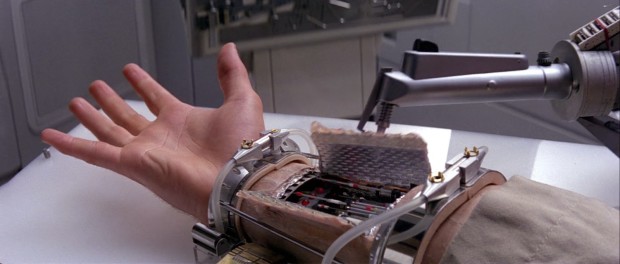successful admissions
of students enter the university of their choice
students consult Education Index when applying for universites
successful admissions
of students enter the university of their choice
students consult Education Index when applying for universites
This year the University of Reading is celebrating the 90th anniversary of its founding. This case was published some little known facts from the life of the University, which certainly seems interesting to anyone interested in this prestigious British University.
1. 97% of all cocoa trees in the world pass through the University of Reading

Who would have thought that world production of chocolate depends on the University of Reading? 97% sold in the world of chocolate trees are certified in the International quarantine centre at the University to exclude any chance that pests and diseases will spread in countries where they grow cocoa beans.
2. Reading has become the first UK University where a Professor, a woman was appointed

In 1908 Edith Morley was appointed Professor of English in the University, which then was called University College, Reading. The event happened 10 years before women in the UK received the right to vote. She held the position until 1940 and was awarded the MBE for services to the University.
3. In the area where is located the University campus, there are more than 1,400 species of flora and fauna

The Whiteknights campus University of Reading is home to a myriad of living creatures and plants. As of January 2015 on its territory was discovered 1456 species of plants, fungi and animals, including badgers, deer, bats, owls, and snakes.
4. Background of the coat of arms of the University

The University of Reading and has a memorable emblem, but only a few know about its significance. Image of a rose taken from the coat of arms of the Royal County of Berkshire (so until the nineteenth century was called the Berkshire), the cross is part of the coat of arms of Christ Church Oxford and 3 shells borrowed from the coat of arms of the Abbey in Reading.
5. It is the country's only University founded in the period between the First and Second World Wars

History the University of Reading can be traced back to 1892, when it opened as a further education institution at Christ Church College Oxford – College Oxford the Church of Christ. However, a government permit for the creation of the University Royal Charter, was not issued until 1926. This makes the University unique in the UK University founded in the period between the two world wars.
6. The University holds official archives of materials for books series Mills & Boon and Ladybird

The specialized collection, which is housed in the University of Reading and contains a lot of interesting items and artifacts, including the official archives of materials for books series Mills & Boon and Ladybird (a popular series of books in the UK). The collection is dedicated to the Ladybird, includes more than 1,000 books and about 700 boxes of original drawings, certificates and important documents.
7. The campus is located abandoned bunker in case of nuclear explosion

If in 50-e years of the XX century started a nuclear war, the University of Reading had become a center, where would the government of the South East of England. Military bunker Region 6 still exists, but it was closed after the creation of the hydrogen bomb, because its design was outdated.
8. Every fifth graduate of the University decides to stay in the city of Reading
The town of Reading has the most qualified personnel in the UK: 28 per cent of its inhabitants have a higher education. Thus every fifth graduate of the University of Reading is working in the city after graduation.
9. Kevin Warwick from the University of Reading became the world's first human-cyborg

During the 1990s, Professor Kevin Warwick from University of Reading and became the world's first human-cyborg after implanting him in the arm electronic chip that allows it to open doors, turn on the lights, air conditioners and other devices controlled by the computer.
10. The last rector of the University made a significant contribution in the abolition of criminal prosecution in the UK of people with a different sexual orientation

Lord Wolfenden became rector of the University of Reading in 1950. And in 1957 he published the report of the Wolfenden Report, which urged the government to stop interfering in the private lives of citizens and to decriminalize sexual orientation. Subsequently, his recommendations led to the adoption in 1967 of the Act on sexual offences, which have replaced the existing at that time an article about the punishment for sodomy. This was an important step in the fight for the rights of people with a different sexual orientation in the UK.